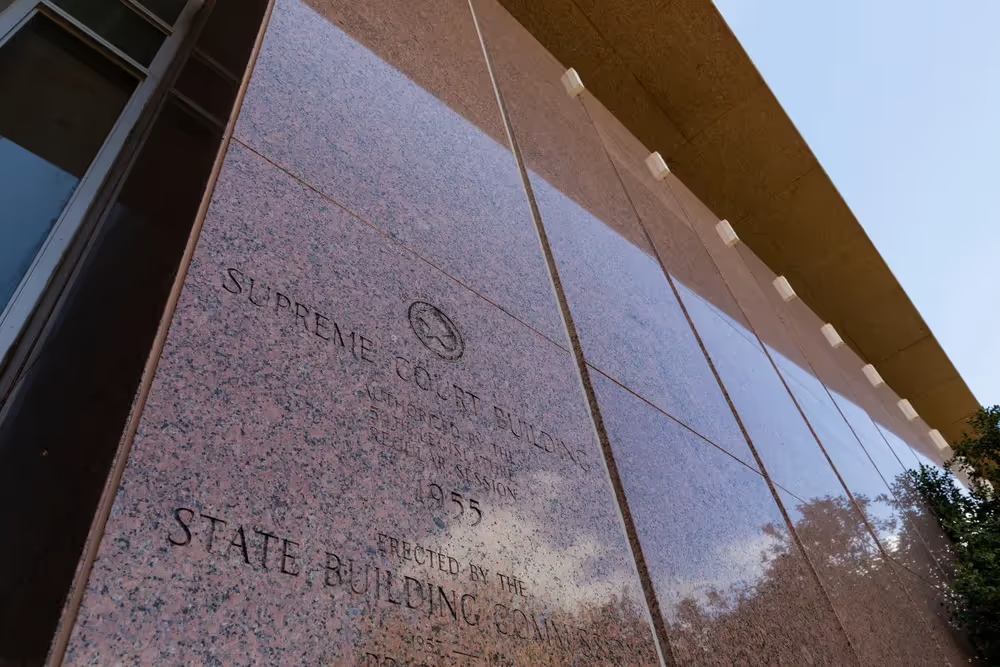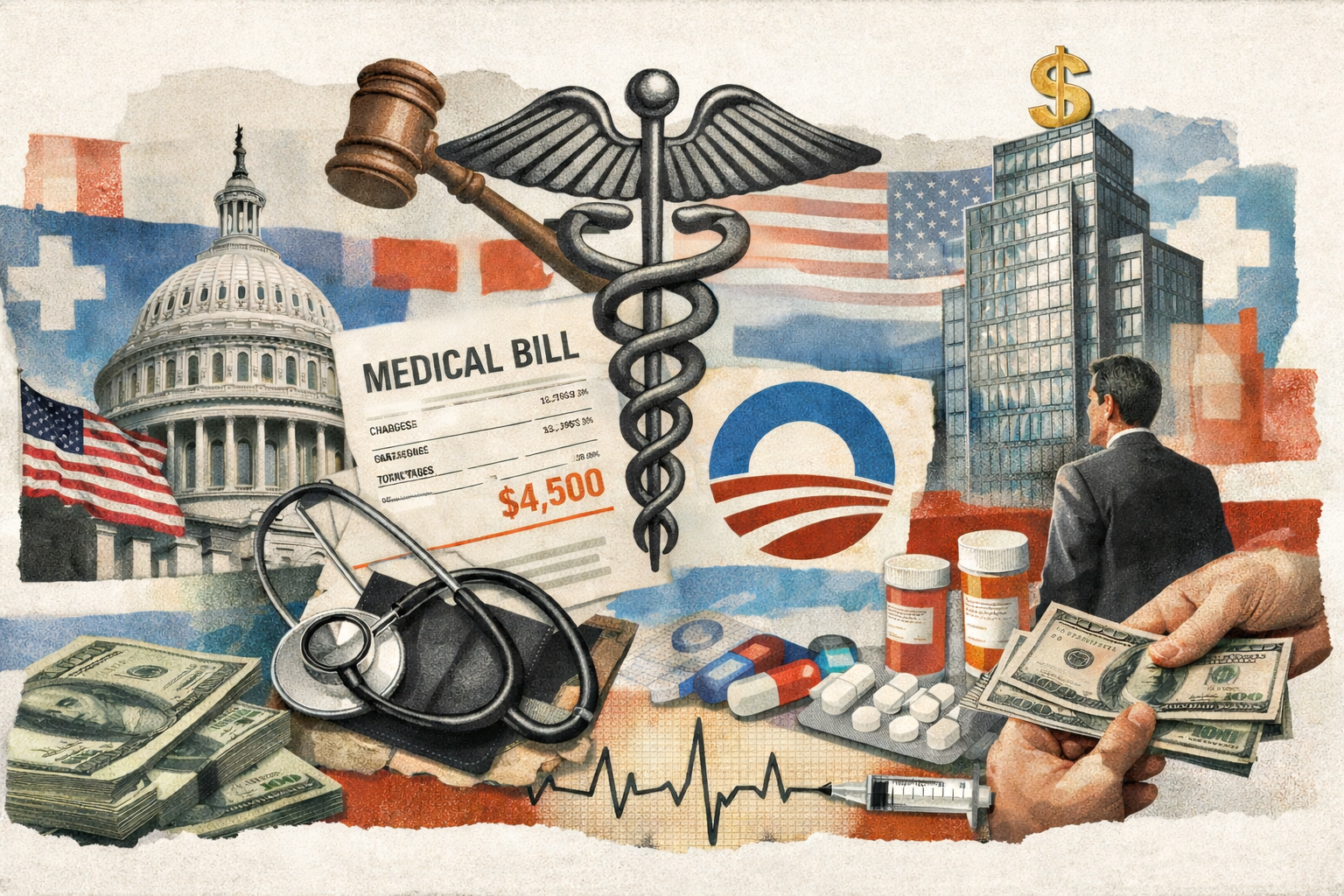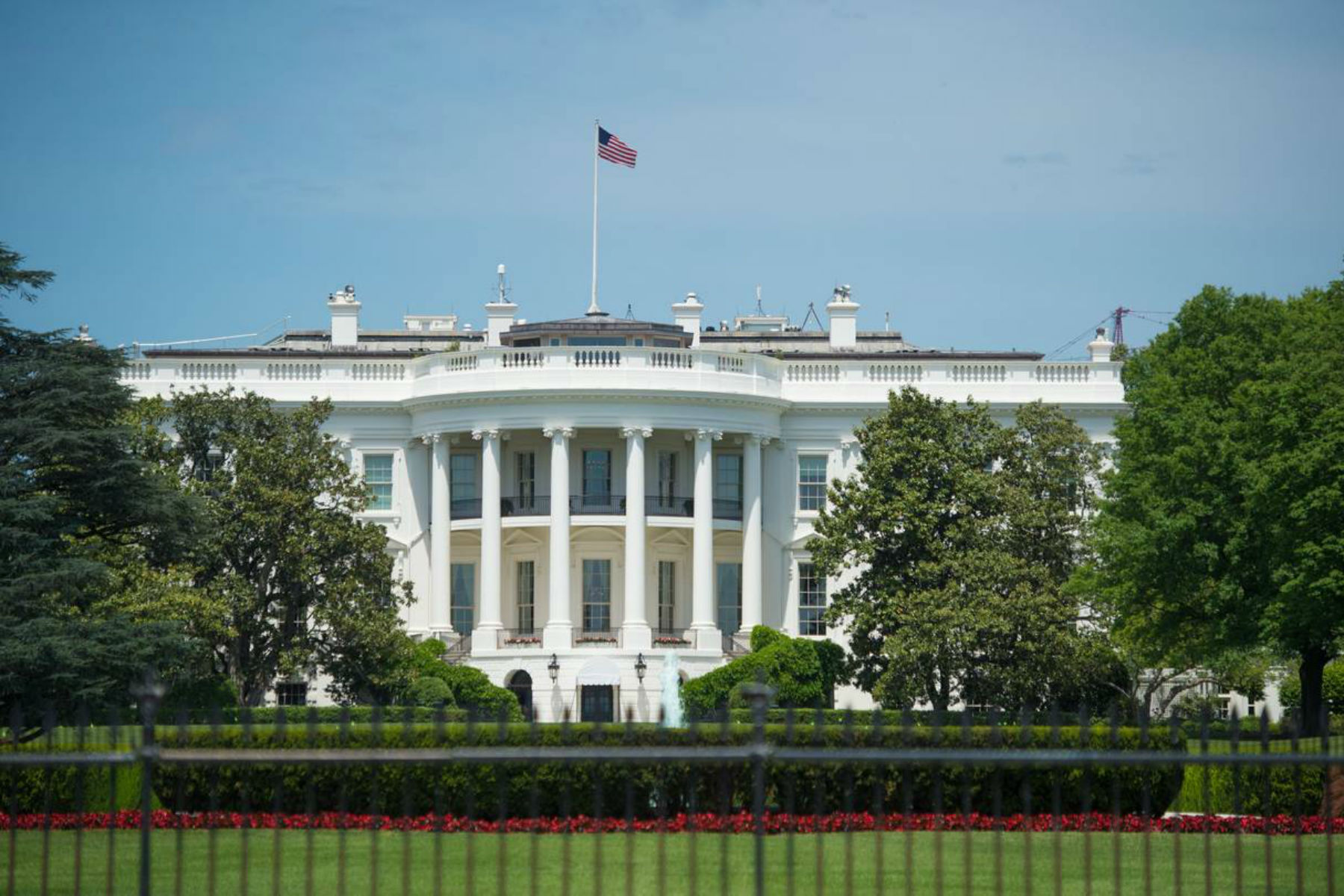
The Supreme Court of Texas Must Put Texas First, and Liberate Law Students from the ABA
The Supreme Court of Texas should play a crucial role in ensuring that law schools adequately prepare students to be effective lawyers in Texas. However, this can be achieved without the ABA’s stringent and arbitrary standards.
Editor's Note: Part of Civitas Outlook's "Texas and the Future of Legal Education" Symposium.
In any polity, the most foundational question is “Who decides?” Generally, the executive and legislative branches determine what policy ought to govern, and the judiciary neutrally applies those laws. But in certain spheres, the courts hold regulatory power. For example, the Supreme Court of Texas (SCOTX) is charged with regulating law schools, the bar exam, and the legal profession. Here, the Justices act as a quasi-legislature. Admittedly, this role may be a bit unfamiliar. Generally, courts say what the law is, not what it ought to be. But when it comes to law schools, the Justices do the exact opposite, and make policy.
Over the past decade, SCOTX made two fateful decisions about legal education. First, in 2018, SCOTX replaced the venerable Texas bar exam with the so-called “Uniform Bar Exam” (UBE). As a result, the Texas bar would no longer test law specific to the state of Texas. Yes, you read that right. Texas law students do not need to learn topics such as oil and gas, Texas family law, or the rules of procedure in Texas courts. Rather, the National Conference of Bar Examiners (NCBE) would test students on the general, or uniform law, in all states.
Why did SCOTX go down this road? The answer is simple: portability. Deans at Texas law schools insisted that they wanted to cater to students who did not intend to practice in Texas. Did this decision serve the people of Texas? I am skeptical. At my law school, and others, enrollment in Texas-specific classes plummeted. Students who will almost certainly practice in Texas no longer see the need to be versed in Texas law. Regrettably, Texas courts and Texas clients will be poorly served. Moreover, as I noted back in 2015, the UBE repudiates federalism and the essential principle that the law is different in every state.
Once SCOTX abandoned the local bar exam, Texas lost the institutional memory and ability to administer its own exam. Now, Texas lawyers were at the mercy of the NCBE. Indeed, only a few years later, the NCBE announced it would shift to the so-called “NextGen” bar exam. This test removed more topics from the exam and eliminated the need to memorize even the most basic principles of law. And there were concerns about the exam imposing DEI principles. Will this exam benefit the people of Texas? Who knows? Despite some controversy, in 2024, Texas announced it would adopt the NextGen bar exam. What choice did it have? Texas no longer has the ability to proctor its own exam, and the law deans insisted this test was necessary for students to practice in other states. Generally, Texas proudly stands apart from blue states like New York; however, when it comes to law schools, there is little difference between the Empire State and the Lone Star State.
The Texas Supreme Court, and indeed most state courts, have been subject to regulatory capture. Law deans want to attract law students from across the country, even those who do not plan to stay in Texas. Two decades ago, Justice Clarence Thomas lamented that the University of Michigan Law School was little more than “a waystation for the rest of the country’s lawyers, rather than a training ground for those who will remain in Michigan.” Thomas, as usual, was right. He questioned UM’s “decision to be an elite institution [that] does little to advance the welfare of the people of Michigan or any cognizable interest of the State of Michigan.”
We can ask the same question about Texas. Why is it in the interest of the Texas Supreme Court to allow students to be educated here and practice elsewhere? President Trump is fond of saying that Americans should put America first. Why shouldn’t Texans put Texas first? Certainly, the Texas legislature does not provide benefits to Texans who pledge to leave the state. Why should the Supreme Court of Texas, when acting as a legislative body, behave any differently?
Thankfully, SCOTX now has a chance to correct the course. In 1983, SCOTX delegated to the American Bar Association the authority to accredit law schools. For the past four decades, law students must graduate from an ABA-approved law school to sit for the Texas bar exam. But in April 2025, SCOTX solicited public comments on “whether to reduce or end the . . . reliance on the ABA.” This request came on the heels of the Florida Supreme Court’s similar request.
The problems with the American Bar Association’s Section of Legal Education are well known. The ABA imposes an endless series of “standards” on law schools, without providing any evidence that these standards are actually effective. The organization imposes a one-size-fits-all all policy, without regard to how the missions of elite law schools differ from those of access law schools. And critically, the left-leaning ABA has dragooned all law schools to impose onerous DEI requirements — a step they have only temporarily suspended in response to action from the Trump Administration. Critically, the ABA does not consider the needs of the people of Texas.
Yet, as could be predicted, the Texas Law Deans have rallied in support of the American Bar Association. On May 12, a “conversation” on the ABA’s role as accreditor was convened by all of the Texas law schools (including my own). There were eleven speakers, ten of whom wholeheartedly supported the ABA’s role as accreditor. Only Professor Seth J. Chandler of the University of Houston offered some critical comments about the organization. However, such groupthink is emblematic of the broader lack of ideological diversity in the academy. Moreover, this monolithic thought is especially unhelpful when deciding whether to change the regulatory regime. (Indeed, this online symposium hosted by the Civitas Institute was occasioned by the glaring one-sided nature of the ABA defense rally.)
Why has the Texas Supreme Court delegated its authority to the ABA? The simple answer is that it is easier to let someone else do the hard work of governing. Texas and other states need to reclaim their authority from groups like the ABA and the NCBE. SCOTX should play a crucial role in ensuring that law schools adequately prepare students to be effective Texas lawyers. However, this can be achieved without the ABA’s stringent and ineffective standards. Instead of measuring “inputs,” SCOTX should instead measure “outputs.” For example, accreditation would turn on bar passage over a three-year rolling average, combined with consideration of employment outcomes. Schools are then free to experiment with different ways to achieve this goal. SCOTX could also require that law schools be accredited by other regional accrediting bodies, which can monitor that schools have adequate finances and other organizational standards. This other accreditation would ensure that students remain eligible for student loans.
And what about portability? Here, collaboration with the federal government would be feasible. The Trump Administration has shown some hostility to the ABA. I suspect the Department of Education would be ready, willing, and able to work with the Supreme Courts of Texas and other states. It would not be challenging to arrange interstate compacts to permit portability on neutral terms. Indeed, if Texas law firms want lawyers from other states to be able to join the Texas bar, SCOTX can permit that process without surrendering control of the Texas bar exam to outside groups.
Law school deans may think that the only way for portability to exist is under the current framework, but there are bold opportunities for new paradigms to emerge. And in the process, SCOTX can liberate law students from the ABA’s grip, even over the objection of law deans. And law schools that wish to maintain their ABA accreditation voluntarily can do so on that basis.
Josh Blackman holds the Centennial Chair of Constitutional Law at the South Texas College of Law Houston.
Politics

National Civitas Institute Poll: Americans are Anxious and Frustrated, Creating a Challenging Environment for Leaders
The poll reveals a deeply pessimistic American electorate, with a majority convinced the nation is on the wrong track.
.webp)
Liberal Democracy Reexamined: Leo Strauss on Alexis de Tocqueville
This article explores Leo Strauss’s thoughts on Alexis de Tocqueville in his 1954 “Natural Right” course transcript.
%20(1).avif)
Long Distance Migration as a Two-Step Sorting Process: The Resettlement of Californians in Texas
Here we press the question of whether the well-documented stream of migrants relocating from California to Texas has been sufficient to alter the political complexion of the destination state.
%20(3).avif)
Who's That Knocking? A Study of the Strategic Choices Facing Large-Scale Grassroots Canvassing Efforts
Although there is a consensus that personalized forms of campaign outreach are more likely to be effective at either mobilizing or even persuading voters, there remains uncertainty about how campaigns should implement get-out-the-vote (GOTV) programs, especially at a truly expansive scale.

California’s Green Policies Destroy Blue-Collar Jobs
The problem here lies not with racism, or lack of reparations, as Newsom and “progressives” insist, but with their own policies, which devastate minority communities.

There's a Perception Gap With the U.S. Economy
As we approach another election cycle, it’s worth asking: what’s real, what’s political theater, and what does it all mean if Democrats regain control of the House?

The Not-So Reckless Attack on Iran
The Iranian government does not have either the leadership or the resources to mount any sustained military response to the forces arrayed against it.

The Healthcare Symposium
We’ve asked James Capretta, Sally Pipes, and Avik Roy to opine on the future of healthcare policy in America.



.avif)






.jpg)


